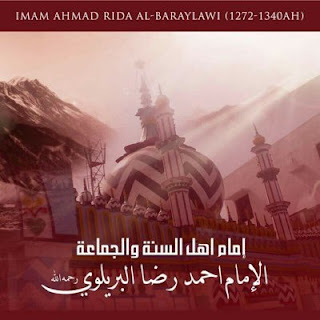Dua of going into the Mosque
When you enter a Mosque, first pray the Durood Sharif and then pray this Dua 'Rabbigh Firli Zunubi Waftahli Abwaaba Rahmatik' and when coming out of the Mosque first pray the DuroodSharif and then pray this Dua'Rabbigh Firli Zunubi Waftahli Abwaaba Fadlik'
Rule: Pointing the soles of your feet towards the Qibla is Makrooh, whether you do it when sleeping or when you are awake. The same rule applies for small children and that it is Makrooh to have their feet pointing towards Qibia and the person who has laid them down will obtain the sin.
Rule: It is Haram to cause litter or any other sort of dirtiness on the Mosque's roof, you must respect the roof of the Mosque as you would respect the Mosque itself [Guniya].
Rule: To climb on the roof of the Mosque without reason is Makrooh [Durr-e-Mukhtar, Radd-ul-Mohtar].
Rule: To make the Mosque an access-way, meaning to go through it to get to the other side of the road etc. is not allowed. If you make a habit of this then you will become a wrongdoer (Fasiq). If someone goes in the Mosque with this intention then regrets it he must either come out of a different door than the one he intended to come out from or pray Namaz there and then come out or if he has not performed Wuzu then he can come out of the door he went in from [Durr-e-Mukhtar, Radd-ut-Mohtar].
Rule: You are not allowed to urinate in a container or obtain blood in the Mosque.
Rule: To take a child or a mentally ill person into the Mosque when you are in doubt that they might cause excretion or urinate then it is Haram and if not then it is Makrooh.
Rule: To write the Quran on walls of the Mosque or on the Mehrab is not a good thing because there is the possibility that the words might drop off and hence will be abused and for the same reason of disrespect to write the Quran on a pillow, on the ground, on the bed or tablecloth or even on the prayer mat is not allowed [Alamgiri,Bahar].
Rule: To perform Wuzu inside the Mosque (JamaatKhana) or to spit, clean your nose or put dirt on the walls of the Mosque or on the carpet or underneath the carpet is forbidden. If you have a need to spit or clean your nose the use a handkerchief [Alamgiri]. To burn impure oil or use an impure substance in the Mosque is forbidden.
Rule: If a place within the Mosque has been designated from when the Mosque was built as an area to perform Wuzu then you can do so and can do it using a container but the condition is that you be very careful that splashes do not enter the Mosque [Alamgiri]. After Wuzu to shake off the water from your hands or face in the Mosque is forbidden [Bahar].
Rule: Make sure that you do not put the dirt swept from the Mosque in a place where it is open to disrespect.
Rule: It is not allowed to plant trees in the Mosque, however, if the ground is damp and therefore needs a tree to be planted there or the pillars are weak and require additional support then it is allowable to plant trees in the Mosque [Alamgiri etc.].
Rule: To ensure that the rules of the Mosque are adhered to, you are allowed to build a room or partition inside the Mosque [Alamgiri].
Rule: It is Haram to beg inside the Mosque and to give a beggar some money is also not allowed [Muslim etc.]. It is not allowed to go inside the Mosque after eating or putting on a substance that gives off a foul stench.
Rule: You are not allowed to go inside the Mosque after eating raw garlic or onions until the smell disappears. The same rule applies to all those items that smell and the Mosque should be protected from it until the smell goes, in the same way if an ill person has applied ointment or medication that has a bad smell should not be allowed in the Mosque and neither should a person who suffers from a disease such as leprosy or skin disease etc. A person who has a habit of using bad language or has an abusive manner should also be prevented from going into the Mosque [Durr-e-Mukhtar, Radd-ul-Mohtar, Bahar]. It is not allowed to talk inside the Mosque of unnecessary things and neither is speaking in a loud voice [Durr-e-Mukhtar, Sagiri].
Rule: For the cleanliness of the Mosque you are allowed to clean out the nest of a pigeon or bat etc [Durr-e-Mukhtar, Bahar].
Rule: It is better to pray Namaz in the village or local Mosque than to pray in the Jamia (Central) Mosque even if the Jamaat is small, in fact if there is no Jamaat performed in the local Mosque then perform Azaan and pray Namaz alone as this is better than to pray in the Jamia Mosque [Sagiri etc.].



